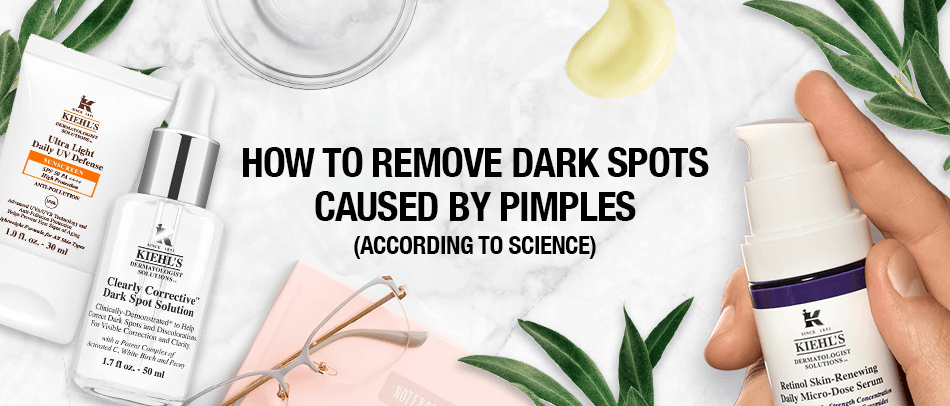Pimples can be frustrating to deal with, especially on days when you need to attend a special occasion. But, the scars they leave behind can be even more stressful. Not only are pimple marks difficult to cover but they’re also hard to get rid of as they usually take a long time to lighten or disappear.
Dark spots are typically the result of the healing process of pimples. When the pimple pops, your body tries to replace the damaged skin and restore its smoothness by sending new skin cells. However, these skin cells tend to have too much melanin, causing post-inflammatory hyperpigmentation or dark spots.
So, how do you combat these unwanted spots? Read on to pick up on a tip or two.
5 Ways to Remove Dark Spots Caused by Pimples
Although dark spots can go away after a few months, you can speed up the process with the help of skincare products. Here’s how to reduce dark spots caused by pimples, complete with the science behind it.
1. Use vitamin C
Ascorbic acid, or vitamin C, is often considered the best component in skin care products with its many benefits. Besides reducing fine lines and wrinkles, it’s a potent ingredient highly effective in inhibiting tyrosinase production—the melanin-producing enzyme that causes hyperpigmentation. As such, vitamin C can brighten your skin color and eliminate dark spots.
On top of this, vitamin C plays a major role in building the skin’s structure through the production of collagen. This factor improves acne wound healing, lightening dark spots caused by pimples.
Good skincare involves using vitamin C, which comes in numerous types, including L-ascorbic acid, ascorbyl palmitate, tetrahexyldecyl ascorbate, and ones combined with bioflavonoids.
However, vitamin C derivatives are not always capable of converting into active skincare ingredients. That makes L-ascorbic acid – the pure vitamin C – the most commonly used type of vitamin C skincare product. It’s also the most effective in penetrating the skin barrier.
2. Invest in a good dark spot treatment
The internet is home to many DIY home remedies for treating dark spots. They can be tempting to try since they’re a lot more affordable compared to skincare products.
However, these can do more harm than good, especially if they are used on their own or without the proper procedures of making them. Many DIY home remedies also contain ingredients that can be harsh on the skin if used too liberally, such as lemons and apple cider vinegar.
As such, it’s best to use clinically tested products, like dark spot treatments, that have passed rigorous testing to ensure safety for skin use.
For example, Kiehl’s Clearly Corrective dark spot serum is powered by activated vitamin C that visibly reduces dark spots and discoloration in 12 weeks. It’s a proven product that helps with the 5 signs of clarity. This product can even out your skin tone by visibly lightening the skin, reducing dark spots, redness, and dullness, and boosting your skin’s overall clarity.
3. Try retinol
Despite the scary stories surrounding this skincare ingredient, retinol is a great component when used correctly. Retinol can penetrate the deeper layers of your skin, so it can treat existing dark spots and those that are only starting to form.
It also has exfoliating properties that promote skin cell growth by shedding dead skin cells. As a result, you can expect brighter and smoother skin by fading hyperpigmentation and minor scars.
But, first-timers may have difficulty with this ingredient. If you’re one of them, consider using Kiehl’s Daily Microdose Retinol Serum. Its microdose formula minimizes the common side effects of retinol when used for the first time. This serum is perfect for all skin types, especially for retinol beginners, leaving you with renewed skin without the discomfort of redness, dryness, or peeling.
4. Don’t skip sunscreen
Next on the list of how to remove dark spots caused by pimples is the use of sunscreen. Studies have shown that the sun’s UV rays can make your dark spots more prominent as they increase your melanin production. On this account, not only can sunscreen treat your dark spots by blocking the UV rays but it can also prevent them from forming in the first place.
So, consider using a lightweight sunscreen with at least SPF 30 during the day, even if you’re only staying inside or the sun isn’t overcast.
Kiehl’s Ultra Light Daily UV Defense is great for upping your active defense against dark spots. This lightweight sunscreen has an SPF 50 PA++++ rating that can block UVA and UVB rays while protecting your skin from environmental aggressors—the common causes of acne.
5. See a dermatologist
There’s only so much you can do with self-diagnosing your skin condition. Most people turn to the internet in search of the best solutions to their skin problems like dark spots. However, you may encounter stubborn acne and dark spots, which may not heal if not given the proper treatments.
When in doubt, consult your trusted dermatologist on viable skincare solutions for your specific skin problem. Dermatologists have the right expertise, as they study everything concerning the skin and its various issues.
Say Adieu to Your Dark Spots
Dark spots result from your body trying to heal damaged skin caused by pimples. This post-inflammatory hyperpigmentation can go away after a few months, but speeding up the process is possible with the right skincare products.
To ensure the best results and avoid worsening your skin problems, use only clinically tested products. Shop at Kiehl’s today for skincare products clinically proven to leave your skin bright and spot-free without the need for purging or any side-effects.

